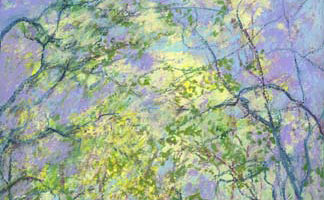Great (Jewish, Feminist) American Poetry
Four new collections of poetry by Ellen Bass, Robin Becker, Alicia Ostriker, and Maxine Kumin demonstrate how powerful Jewish feminism is in the consciousness of American poetry.
Ellen Bass, co-editor of the ground- breaking anthology of women’s poetry No More Masks! and self-help best-seller The Courage to Heal, reminds us of the vast universe that poets create from small, sharply-observed moments. In her third collection, Like a Beggar, Bass builds the epic from the ordinary and celebrates the ordinary as exceptional. Filled with odes and lyrical, prayer-like meditations, Like a Beggar “love[s] the truth.” In the first poem “Relax,” Bass warned, “Bad things are going to happen;” and they do, in this book, in life, but Bass renders them livable and beautiful. After gruesome details describing the killing of a chicken, Bass reminds us, “looking straight at the terrible,” of the “one-sided accord we make with the living of this world.” Like a Beggar is an exuberant celebration of living in the world.
Couplets, tercets, and quatrains order the pages of Robin Becker’s eighth collection Tiger Heron, but the emotions they contain are unruly. In one beautiful poem about her mother, “A Last Go,” Becker confides, “Now that medical studies show/ the skinny live longer, she’s gained/the sweet taste of being right all along.” Still, Becker encourages her to “try the ginger scones, / the lemon poppy seed cake,” not- ing, “there’s time for a last / go at pleasure.” Grief and loss punctuate pleasure in Tiger Heron, but through this dizzying emotional landscape, Becker’s technical prowess dazzles. In “The Sounds of Yiddish,” she moves seamlessly between lighthearted bromides, like “when a schlimazel sells an umbrella the sun comes up,” to grim reflections on her Bubbe leaving a shtetl with the Yiddish aphorism “Spare us what we can learn to endure.”
Alicia Ostriker creates a new cosmology in The Old Woman, the Tulip, and the Dog, interrogating what makes the world operate for the salty old woman, the comely tulip, and the flippant dog. A sequence of persona poems, often ending with a joke, this collection differs from Ostriker’s previous work, which featured her strong confessional voice and lyrical narratives. In The Old Woman, the Tulip, and the Dog, Ostriker summons William Blake as an intellectual companion, infusing his voice with her Jewish, feminist sensibility. For example, in “The Wind That Blows Through Me,” the old woman posits that God is inside her hand when she writes, while the tulip says she feels “the presence / of the goddess inside me.” The dog rejects theology as “bunk” but while running in the park affirms “the springtime wind is real.” The Old Woman, the Tulip, and the Dog is a joyous, accessible engagement.
Maxine Kumin finalized And Short the Season just before her death, at age 88, in February 2014. The collection confirms her formidable poetic talents as well as the wide range of ideas that occupied her as a poet and public intellectual. Reprinting “The Revisionist Dream,” Kumin gestures to her storied friendship with Anne Sexton; she grapples with reports of torture at Guantánamo Bay and celebrates the natural world. In “Purim and the Beetles of Our Lady,” Kumin considers beetles that “emerge in a moment of melt / to slip into our homes through crevices too slight / for a whisper.” In spite of her delight with nature, Kumin confides that these beetles “eat holes in my love for this earth.” While Kumin’s love of nature may be frayed, it is persistent—and visionary. In And Short the Season, Kumin explores catastrophic climate change, explaining its effects in “Going Down:” “they call it climigration, these / experts in vast shoreline loss / and islands swept by rising seas.” She also warns of losses, command- ing “Blow a kiss to this drowned world.”
Most spectacular in this collection is Kumin’s series “Sonnets Uncorseted.” Ten linked sonnets meditate on seventeenth-century poet Margaret Cavendish and the progress women made in poetry during Kumin’s lifetime. This triumphant narrative lessens the pain readers feel from Kumin’s loss. In “Allow Me,” she portends her own death, imploring a godlike reader to make it “sudden and quiet, surrounded by friends.” She then recognizes “But who gets to choose this ordered end / Trim and untattered, loved ones at hand?” Kumin’s life may have come to an end, but at least we can keep her books at hand.


